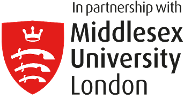Overview
 The delivery of safe and effective health and social care is dependent on constantly monitoring quality and identifying potential practice development. This module has been designed to enable students to explore the key concepts of quality monitoring and governance. They will develop leadership skills required to evaluate an area of local practice, taking into consideration of local, national and international best practice, and lessons learnt from failures in service delivery.
The delivery of safe and effective health and social care is dependent on constantly monitoring quality and identifying potential practice development. This module has been designed to enable students to explore the key concepts of quality monitoring and governance. They will develop leadership skills required to evaluate an area of local practice, taking into consideration of local, national and international best practice, and lessons learnt from failures in service delivery.
This module will enable students to demonstrate their achievement in relation to the States of Guernsey Competency Framework (2017) sections:
- Leadership: Changing and Improving
- Accountability: Achieving Good Commercial Outcomes
- Accountability: Managing a Quality Service
Healthcare Leadership Model (NHS Leadership Academy, 2013) dimensions:
- Inspiring shared purpose
- Evaluating information
- Holding to account
Leadership Qualities Framework (Skills for Care, 2016) dimensions:
- Managing services
- Improving services
This module is quality assured by Middlesex University and the student will receive a Middlesex University award on successful completion.
Course content
Module aims:
This module aims to enable students to critically consider the centrality of governance in safe and effective service delivery, and the leadership skills required to facilitate this process.
Knowledge (understanding):
- Critically analyse how effective governance can enable safe and effective service provision through identification of lessons learnt from service review, and implementation of risk reduction measures.
- Critically explore leadership roles and responsibility in maintaining and improving quality
- Critically analyse how reports into local, national or international quality investigations may be used to drive improvement in local practice
- Critically appraise sources of evidence to evaluate service quality and to drive continual improvement.
Skills (competencies):
Apply the findings of quality reviews to recommend areas for service improvements and disseminate these recommendations to relevant stakeholders.
Syllabus:
The student will have the opportunity to explore the following;
- Governance of safe and effective professional practice
- The role of Advanced Practitioners and other Leadership roles in relation to Quality
- Leading and monitoring organisational performance
- International, national and local perspectives of quality
- Quality measures and their application to practice
- Investigation of service failure, for example root cause analysis
- Service user involvement in service evaluation and improvement
Teaching
The students will undertake 150 hours of independent and facilitated learning over one semester of 15 weeks.
Our pedagogical approach, aligned to Universal Design for Learning (CAST 2018), is to offer a range of teaching and learning experience to enable deep learning and mastery of the subject. Using a blended learning multimedia approach, teaching content will be available using technology such as videos, narrated PowerPoints and podcasts through the Institute’s Learning Pod. Knowledge and understanding, as well as application to the student’s area of practise, will be developed through a range of teaching methods and formative assessment suited to the module content.
To undertake this module students will be expected to share their learning with fellow students and managers and gain formative feedback through methods such as an informal seminar presentation. They will also develop skills in report writing, and will have access to the organisations Governance and Service Improvement resources such as the ‘Safer Everyday’ programme.
There will be embedded sessions to address the expectations of studying at Masters level for all students who are new to this level of study, which will also be available to continuing students, as well as access to additional optional study skills sessions, both online and workshop based
Assessment methods
The assessment method for this module comprises one summative tasks chosen from two optional tasks. This will allow students to opt for the task which best reflects their role and responsibilities, ensuring that they are able to complete a meaningful piece of work. This assessment strategy is designed in accordance with the programme’s pedagogic approach for inclusive learning.
Task 1 Option 1:
A 3,000 word report which will critically review recent service evaluations to evaluate how an area of practice relevant to the student’s role meets local, national and international best practice. The student will critically consider leadership roles in relation to such governance processes, and provide a written report to service managers on the findings of this review.
Or
Task 1 Option 2:
A 3,000 word critical analysis of a local, national or international serious incident report related to local practice and critically analyse the role of a service leader in scanning the horizon for such reports and ensuring the findings are recognised within local practice provision., and how these findings can be disseminated to relevant stakeholders.
This assessment will demonstrate the student’s achievement of Learning Outcomes K1 to 4, and S1, and contribute to 100% of the total module mark.
Entry requirements
Students accessing this programme will normally hold a relevant first degree (2:2 or above). Consideration will be given to applicants who have extensive experience and can demonstrate that they have the equivalent 'graduate level' skills by virtue of this experience. These individuals will be able to seek alternative entry through the accreditation of prior learning process. International students must demonstrate competence in English language through IELTS 6.5 (with minimum 6.0 in all components) or equivalent.
Fees and funding
Funding may be available for States of Guernsey employees. Please discuss with your manager.Careers
This module is a designated module of the leadership programmes and completion of these programmes will enable students to take on more advanced leadership roles
Book now
Email: theinstitute@gov.gg

